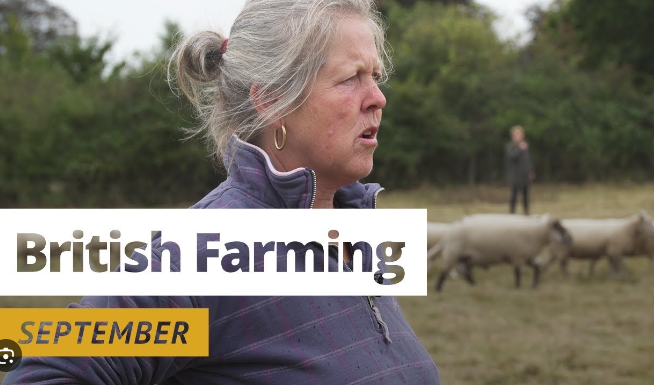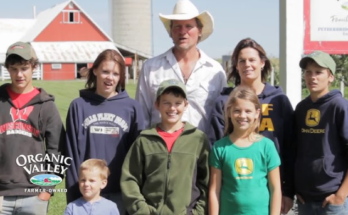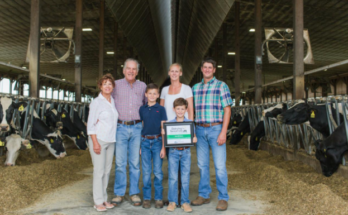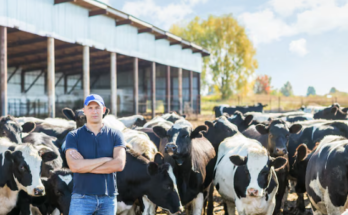It’s September, and we’re back on the farm.
The seasonal change from tee shirts to coats, felt almost as abrupt as the transition from city to country this month.

British Farming: 12 Months on a UK Farm – September
In September, British farmers are nearing the end of the growing season, managing a busy harvest period while looking ahead to the coming months of planning and preparation for next year’s crops. As they work across a variety of agricultural sectors, ranging from livestock to arable farming, managing finances and securing support through government funding and other initiatives becomes crucial. The spending budget available to UK farmers is essential in ensuring their operations run smoothly, and it is shaped by both national and regional policies.
Spending Budget for British Farmers
Farmers in the UK rely on a combination of public funding, subsidies, and market-driven income to support their operations. The most significant source of support has historically been the European Union’s Common Agricultural Policy (CAP). However, following Brexit, the UK government has shifted towards its own funding schemes, including the Environmental Land Management (ELM) program, which focuses on sustainability, biodiversity, and environmental stewardship. The new schemes aim to assist farmers in making the transition to more environmentally friendly practices while maintaining farm profitability.
The UK government has also set aside funds for emergency support in the event of natural disasters, such as floods or droughts, which can heavily impact farming productivity. This financial aid allows farmers to recover and continue their operations even after facing unpredictable challenges. Farmers can access these budgets through various grants and schemes designed to reduce their financial burden and maintain their livelihoods.
Release Dates of Key Agricultural Policies and Budgets
The UK government typically releases its agricultural policies and budget allocations on an annual basis. The national budget is announced in March, setting the tone for the financial year ahead and outlining any changes to subsidies, grants, and other support systems for farmers. For instance, any updates to the ELM program or funding for specific crop support measures are often revealed at this time, giving farmers time to adjust their business plans accordingly.
In addition to the national budget, regional governments in Wales, Scotland, and Northern Ireland also have their own agricultural spending priorities, which may differ from those of England. These regional budgets are typically released shortly after the national budget and reflect local agricultural needs and goals. This ensures that farmers in all parts of the UK have access to the financial support they need, tailored to their specific circumstances.
Success of UK Farmers
September marks a pivotal time in the farming calendar, with the harvest season winding down, and many farmers reflect on the successes of the year. British farmers have faced numerous challenges, such as fluctuating commodity prices, labor shortages, and changing weather patterns. Despite these challenges, farmers continue to show resilience and adaptability, leveraging the latest farming technologies and practices to maximize productivity.
For example, the success of British wheat and barley crops, which are harvested around this time, has been bolstered by advancements in crop genetics, pest management, and precision farming techniques. Additionally, farmers who have embraced agroecological practices are seeing rewards in terms of improved soil health and reduced environmental impact, aligning their operations with national sustainability goals.
Farm Availability and Resources for Farmers
UK farmers have access to a variety of resources aimed at supporting their land acquisition, expansion, and development. Government websites provide valuable information on available land for sale or lease, as well as details about agricultural grants and funding opportunities. The National Farmers’ Union (NFU) and other industry organizations also offer guidance on navigating the changing landscape of UK agriculture.
Farming is becoming increasingly accessible to younger generations and new entrants, thanks to schemes aimed at encouraging the next wave of farmers. Initiatives such as the New Entrant Support Scheme and local agricultural colleges offer vital resources to individuals looking to start a career in farming. Additionally, farmers can access training programs and workshops to improve their skills in areas such as crop management, animal husbandry, and environmental sustainability.
The combination of governmental support, industry networks, and innovative farming practices enables UK farmers to continue thriving and contributing to the nation’s agricultural output. Despite the challenges faced, farming in the UK remains an essential part of the economy, supported by a robust network of resources and funding mechanisms designed to ensure success.



